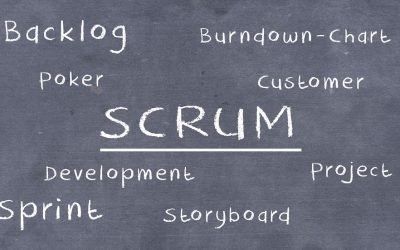blog – artiClES
In this section you will find our articles, case studies, book reviews and toolboxes.
“…AT NOON I WILL GO HOME.”
In his book "… and at noon I go home" Detlef Lohmann describes how he completely restructured and radically changed his company. The book is very entertaining and mostly written in a very exciting way. It contains many practical examples that make it easy to implement...
CRITERIA FOR A SUCCESSFUL AGILE COACH
Recently I had a conversation with a client about describing a good agile coach. I often hear such questions at agile conferences and also in meetings with my customers. Usually the list starts with the fact that it is important to be able to convey agility as a...
CANVAS: Digital Leadership
In their book "NETWORK SCHLÄGT HIERARCHIE - Neue Führung mit Digital Leadership", the authors Christiane Brandes-Visbeck and Ines Gensinger provide their readers with a helpful Canvas for developing their Digital Leadership style towards "Digital Leadership...
CANVAS – Analyze and Edit Agile Criteria
The CANVAS method allows us to analyse and further develop the agile criteria of our company in a team. Strategy Food for thought What are the core elements of today's strategy?Is Agil anchored in the strategy?Who defined the strategy?Is the strategy known to all...
CHECKLIST FACILITATION
How to prepare a moderation?Order clarification Who is the client for the moderation? Who are the other stakeholders for the topic? What exactly does the client expect from the moderation? What experience does the client already have with moderated events? What is the...
TEAM DEVELOPMENT IN PROJECTS
1. Input phase Attributes Who are the others? Do I have to be afraid or will I feel comfortable? Possible interventions break ice establish contacts allow arrivals Life cycle puberty 2. Orientation phase Attributes What's the subject? How are we supposed to work? Do I...
A SYSTEMATIC APPROACH IN EVERY DAY LANGUAGE
Order clarification What's this all about? Can one of you explain what we actually want to do? So, what is expected of us? What is the exact content of the task? What do we mean by this word/order? Sense/purpose What are we doing this for? What does our company/our...
Agile… Not by SCRUM, but with SCRUM (2)
Recently I wrote an article with the title "Agile… not by Scrum, but with Scrum". Maybe I didn't bring the content of this article to the point for experienced agilists. I shall therefore try to be more specific here. You can be agile without using Scrum or Kanban....
RULES FOR VIRTUAL TEAMS
Voice mail Check your voice mail daily and call back within 24 hours. If you cannot check the voice mail, speak a friendly message that you have limited access. Speak slowly and clearly when leaving messages for others. Say exactly and clearly what you need until...
AGILE PROJECT AND PRODUCT DEVELOPMENT
A complex environment and constantly changing conditions require modern, agile approaches for modern project and product management - a proven method for this is SCRUM. Coverdale has extensive experience in training skills, providing tools and teaching practical...
CHECKLIST PEOPLE ASSESSMENT
People you know little about… This checklist gives an overview of the traps you can fall into when assessing people you know little about. Selective perception We tend to perceive only certain behaviors in others. Mostly these perceptions correspond with our already...
The collegially managed company – ideas and practices for the agile organization of tomorrow
With this focus, this book offers an alternative to the classic hierarchical leadership approach. The two authors know from their own experience that even small changes can have a big impact, as they themselves have supported the transformation of their company. The...













Recent Comments